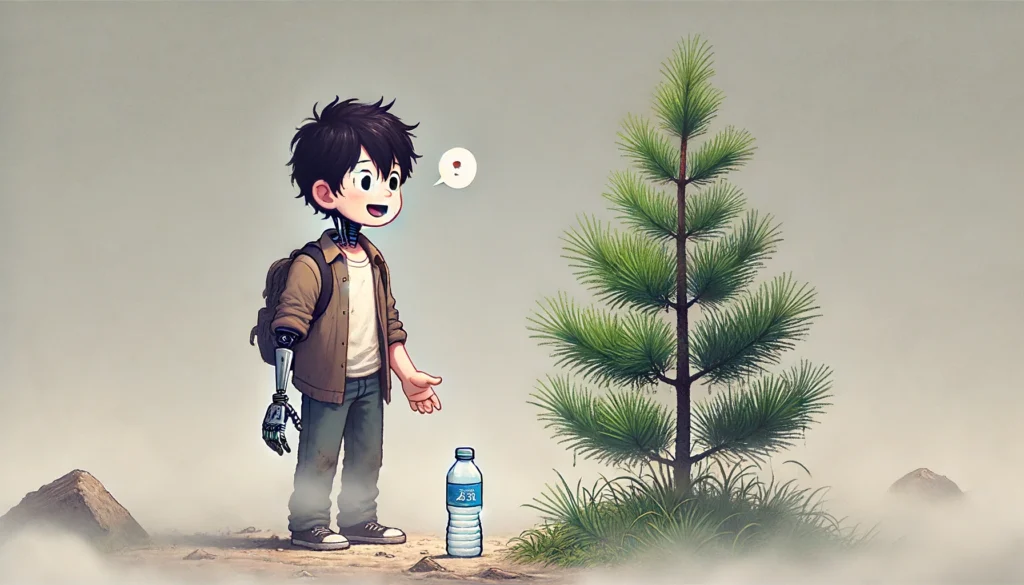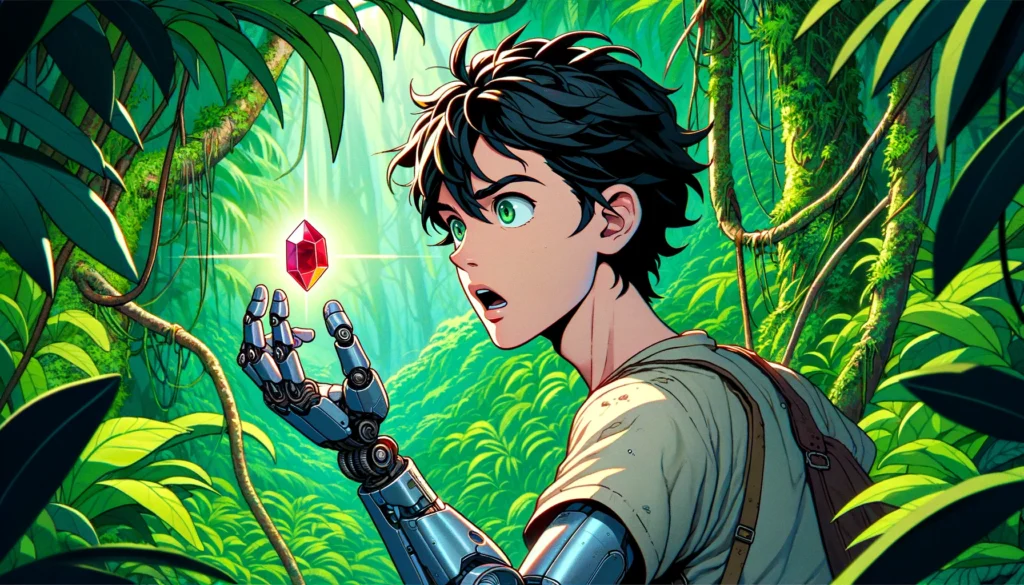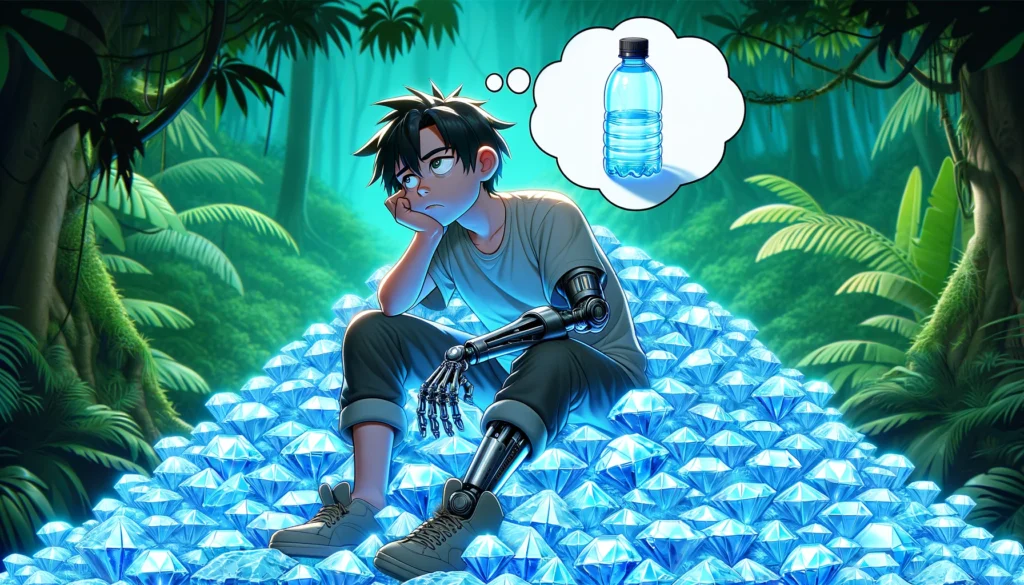The most valuable kind of knowledge is the type you get from experience. So how do you get a ton of it?
Touch grass. (do new stuff)
Not just some.
As much as possible.

Meaning: maximize doing new unfamiliar things. You’ll get lots of new, useful, experience-based knowledge. The kind you get from years of experience. The kind you cant find on Google.
Experience comes from experiencing things, not from time. If you passively wait around, you’ll barely get any. The opposite is true, too – if you actively seek out experience, you’ll get way more of it.
So, to gain a massive advantage in life, make maximizing grass-touching your default strategy. I.e., make your derivative of gathering useful info as high as possible.
In this article I go over how to do this, and give some useful examples.
Experience-based info
Experience-based info is the extremely valuable type of info you get from doing new, different things. The kind you would NEVER find on Google or in a classroom or ChatGPT. The kind of info people with ‘experience’ have.

Some forms of experience-based info you might learn from new things:
- useful details that fill in a map of the territory your business operates in, showing you better directions to move in (this is why pivots happen)
- a skill (knowledge of how to do something) that permanently increases what you’re able to do
- knowledge that a specific fear you had is not actually anything to be afraid of
- etc
The fog – why this works
You typically can’t think your way to experience-based information.
Imagine you’re in a thick fog where you can only see two steps ahead. You can’t just stare into it longer and expect to see further. Only after moving forward a few steps will you see what it concealed.

This is why overperfecting before taking action is an antipattern; you’re trying to see 10 moves deep into the fog by squinting harder, rather than taking a single step forward, usually out of fear.
Lots of useful data points are obscured by the fog. By moving forward, things that were just on the fog’s edge become visible.

Its about experiences, NOT time
Gaining experience isn’t a function of time, but rather how many new experiences you have. The difference may seem subtle or irrelevant, but it’s actually incredibly important to understand, and very VERY useful to exploit.
- if you don’t have new experiences, you will not gain experience-based knowledge
- if you have only a few new experiences, you will gain a bit of experience-based knowledge
- if you have a lot of new experiences, you will gain a lot of experience-based knowledge

To exploit this, get in the habit of maximizing the amount of new experiences you have.
Try new technologies, try new strategies, etc.
Aim for experiences which are more likely to teach you useful knowledge (trying out a new technology for the first time will likely teach you more than trying out a new restaurant).
Experience-based knowledge is valuable, but why?
Maybe because it takes energy to get (doing things, overcoming fears, overcoming fixed-ness), so it filters many people out of knowing it, therefore giving whoever has it a large competitive advantage.

Another reason: you already have tons of easy-to-get knowledge. Therefore, the benefit from each new unit of that easy-to-get info is much less than the benefit from each new unit of harder-to-gather experience-based information.
You should generally chase whatever info type currently has the greatest marginal returns.

Ideas for how to do this
The idea is to do lots of new, unfamiliar stuff that falls outside of the distribution of what you typically do.
Here are some examples:
1. Do something you’ve already done, but more extreme
- create a much bigger project than you have before
- try working for a longer stretch of time than you’re used to
- etc
2. Do something of a very different nature from what you’ve already done
- make a project that requires skills you don’t have but could get
- take an action that puts you in a new environment or context
- do something you’ve been afraid to try for a while, that you usually find complex ways around doing
- etc
Be creative with coming up with new ways to do new things. It’s a skill you can improve through practice.
Specific Examples of Uses
Increase your skillset in log(project) time
Tremendously increase your skillset by speedrunning as many out-of-personal-distribution projects as possible.
Completing projects 15% outside of your skillset expands your skillset by 15%. Using the rule of 72, this doubles your skillset every 5 projects.

Speedrun this to get really, really good at programming. Here’s a guide on how to build things extremely fast.
As a side effect, you’ll build up a massive portfolio. This can help you land jobs, especially if the projects require the same tools/skills you’d use on the job you’re applying for. Make sure to actually finish projects. Avoid ‘shiny object syndrome’.
Company pivots
Why do so many successful companies pivot?
A better question is, why didn’t they just do the successful thing in the first place?
It’s because there were better business opportunities hidden out in the fog, and they had to go out into the fog (do new things to get more info about customers desires, the market, etc) in order to see them.
“Action produces information” – Podcast: Lex Fridman and CoinBase CEO
An example that stands out in my mind is the pivot from Justin.tv (online reality tv) to Twitch (gaming-centered streaming). Michael Seibel, Twitch cofounder (now at YCombinator), talks about how they noticed gamers were a large cohort of Justin.tv users. They later doubled down on gamers, which lead to success with Twitch.

To get to the point where they could see this pivot, they had to take many steps through the fog – creating/improving Justin.tv, attracting users, and actually talking to them.
Once they walked closer to the pivot point, they found even more information that lead them to even more successful moves they could make, such as changing a single number on their servers to allow for higher definition streaming.
After walking further through the fog by going out and talking to users, they found another useful action they could take: giving streamers some of their ad revenue (which Michael talks about here)
Seibel: “Building the thing wasn’t hard..”
Hoffman: “It was just being in enough repeated interactions to come up with that”
Seibel: “Yes.“

Seeing these opportunities is generally not feasible if you’re stuck at the ‘I have an idea’ phase of the company, and you aren’t actually doing anything other than overperfecting your thoughts/plans with no end condition (called ‘getting cooked in the squat’). Go build something and put it in front of users to get information. More information allows you to do orders-of-magnitude better optimization, so perfecting at the beginning is usually moot.
Curing/preventing overfitting
Overfitting is when your mental models become aligned with your limited sample of experiences to the detriment of their alignment with the real world.

This can happen if all you do is read information on the internet about how the world is (which, in moderation, is useful!) without going outside and getting information from new, different experiences.
Overfitting can cause (and be caused by) irrational fear
Overfitting can have negative consequences, such as overblown fear, and fear of things you shouldn’t be afraid of. In chess, the latter is called ‘seeing ghosts’. Sometimes you are aware that these are irrational fears, and sometimes you don’t.

Preventing/curing irrational fears
In ML, adding more training data is a common strategy to prevent models from overfitting.
There are two main tactics that have helped me overcome overfitting-based fear. The first is to come to terms with the risks. The second is to touch grass. This is the main idea behind exposure therapy – get experience related to the fears you know are irrational, and they will dissolve.
I’ve been using the latter for over a decade and its successfully resolved many large, irrational fears that were significantly holding me back.
My personal experience
I have personally done this ‘intentionally increase derivative by doing actions to lead to information’ strategy for a few months and it has been tremendously helpful, to the point where I felt good writing an article about it. I’ve learned a large amount of useful information and skills from it.
I generally only write about things that have gotten great results for me that I do not think are obvious.
Related concept – explore exploit algorithm
A fundamental problem in decision making is how to balance exploring for more information vs exploiting what you already know to be useful.
What’s the right balance of searching for new songs and listening to old ones? Trying out new restaurants and going to ones you already like?

The topic of explore vs exploit goes very, very deep, and I recommend you read Algorithms to Live By to learn more about it and other useful real-life algorithms. It’s a very very very cracked ebook. I gain nothing from plugging it but it’s one of my favorite books that has changed a lot about how I operate.
If you liked this article and want more of this kind of content, follow me on x @dnbt777


This idea of overfitting the mind to some form of a personalised “echo chamber” is so true in todays world. Breaking strong beliefs or logical proposition by seeking perspective is what needs to be done, and going out in the real world and experiencing things outside your comfort zone is definitely the way to go. Great read